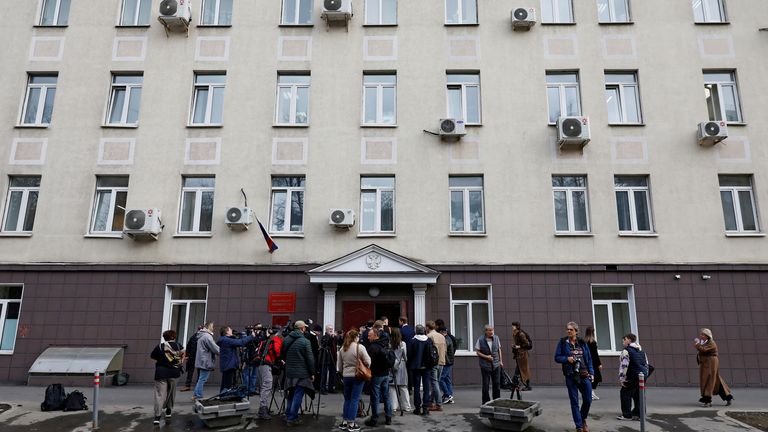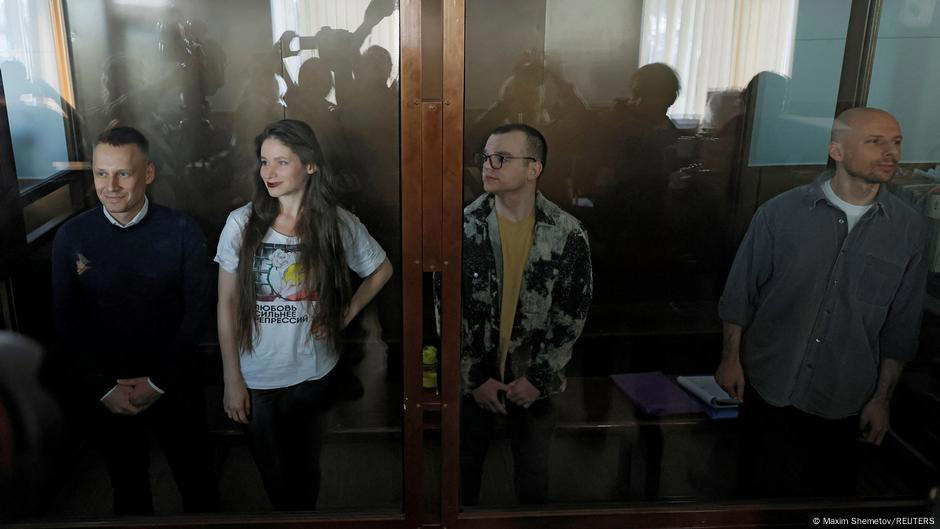Russia"s Government Classifies Criticism as Extremism, Stifling Free Speech
In a troubling escalation of state control over public discourse, the Russian government has increasingly branded criticism of its policies as "extremism." This alarming trend not only undermines the principles of free speech but also sets a dangerous precedent for civil liberties in the country. As dissent becomes synonymous with extremism, many fear that the ramifications could be profound, affecting not just political opposition but also everyday citizens who wish to express their views.
Background & Context
Since the annexation of Crimea in 2014, Russia has seen a significant tightening of its grip on freedom of expression. The government, led by President Vladimir Putin, has enacted a series of laws that criminalize dissent and restrict media freedom, framing these measures as necessary for national security. Under the guise of combating extremism, authorities have targeted journalists, activists, and ordinary citizens who dare to voice their opposition to government policies.
In recent years, the definition of "extremism" has expanded dramatically. What was once reserved for violent acts or incitement to hatred now encompasses a broad spectrum of political critique and social commentary. This shift has allowed the state to suppress a wide range of views that challenge its narrative, creating a chilling effect that stifles open dialogue.
Key Developments
Recent reports indicate that the Russian government has intensified its crackdown on dissenting voices. High-profile cases include the prosecution of journalists and activists who have been charged with extremism for sharing their opinions online or participating in protests. In one notable instance, a prominent journalist was sentenced to years in prison for publishing articles critical of government policies, a move that has drawn international condemnation.
Moreover, the government has employed sophisticated surveillance technologies to monitor online activities, making it increasingly risky for individuals to express their views. Citizens are now subject to fines and even imprisonment for actions deemed "extremist," such as sharing links to banned content or participating in protests. This environment of fear and repression has left many Russians hesitant to engage in political discourse, further entrenching the government"s control.
\n\n
Image for Russia"s Government Classifies Criticism as Extremism, Stifling Free Speech
Broader Impact
The ramifications of this crackdown extend beyond the immediate consequences for those targeted. By labeling dissent as extremism, the Russian government undermines the very foundations of democracy and civil society. Experts argue that such actions create a society where fear prevails over freedom, limiting the potential for political reform and societal progress.
Comparatively, similar situations have unfolded in other authoritarian regimes, where governments have sought to suppress dissent by redefining it as a threat to national security. This tactic not only serves to silence opposition but also to create an atmosphere of distrust among citizens, who may fear their neighbors or colleagues for expressing differing opinions. The international community has begun to take notice, with calls for sanctions and diplomatic pressure aimed at reversing these oppressive policies.
What"s Next
As the situation continues to evolve, many are left wondering what the future holds for freedom of expression in Russia. The government"s ongoing efforts to control public discourse suggest that the current trajectory is unlikely to change without significant external pressure or internal dissent. Observers are closely monitoring the actions of civil society organizations, which have historically played a crucial role in advocating for human rights and political reform.
In light of these recent developments, it is essential for the global community to remain vigilant and responsive. Efforts to support independent journalism and human rights advocacy within Russia could prove vital in combating this trend of repression. As previously reported, the struggle for freedom of speech in Russia is far from over, and the resilience of its citizens will be tested in the coming months and years.

Image for Russia"s Government Classifies Criticism as Extremism, Stifling Free Speech

![[Video] Iranian security forces injure woman in Mashhad; death toll exceeds 3,000](/_next/image?url=%2Fapi%2Fimage%2Fthumbnails%2Fthumbnail-1768338642591-z7mptn-thumbnail.jpg&w=3840&q=75)
![[Video] Federal agents drop tear gas canisters from moving vehicles in neighborhood](/_next/image?url=%2Fapi%2Fimage%2Fthumbnails%2Fthumbnail-1768336360849-hrwza-thumbnail.jpg&w=3840&q=75)
![[Video] Protesters surround federal agents at Target in Minneapolis](/_next/image?url=%2Fapi%2Fimage%2Fthumbnails%2Fthumbnail-1768331517834-1384td-thumbnail.jpg&w=3840&q=75)



![[Video] Gunfire between Iraqi security forces and Sadr militias in Baghdad](/_next/image?url=%2Fapi%2Fimage%2Fthumbnails%2Fthumbnail-1768343508874-4redb-thumbnail.jpg&w=3840&q=75)
